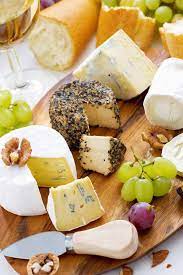The Intriguing World of Taste: Exploring the Senses
When we bite into a juicy apple, savor a decadent piece of chocolate, or sip on a robust cup of coffee, we are engaging in one of life’s most pleasurable experiences – the sense of taste. Taste is a complex and fascinating phenomenon that goes beyond simply distinguishing between sweet, sour, salty, bitter, and umami flavors.
Our taste buds, located on our tongues and in various parts of our mouths, play a crucial role in helping us perceive different flavors. But taste is not just about the physical act of eating; it is also deeply intertwined with our memories, emotions, and cultural backgrounds.
Each person’s sense of taste is unique and can be influenced by factors such as genetics, age, and even mood. What one individual finds delectable, another may find unpalatable. This diversity in taste preferences adds richness to our culinary experiences and opens up a world of possibilities when it comes to exploring new foods and flavors.
Moreover, our sense of taste is closely connected to our sense of smell. The aroma of food can greatly enhance or diminish its perceived flavor. This is why food that looks appetizing but lacks aroma may fall short in satisfying our taste buds.
As we continue to unravel the mysteries of taste through scientific research and culinary experimentation, one thing remains clear – the joy of discovering new flavors and relishing familiar ones will always be an integral part of the human experience. So let us raise our glasses (or forks) to the wondrous world of taste and all the sensory delights it has to offer!
8 Essential Tips for Mastering Flavors in Your Cooking
- Experiment with different spices and herbs to enhance flavors.
- Balance sweet, salty, sour, and bitter flavors for a well-rounded taste.
- Use fresh ingredients for the best flavor impact.
- Don’t overcook food as it can affect taste and texture negatively.
- Try contrasting temperatures in dishes for added interest.
- Allow flavors to meld together by letting dishes sit before serving.
- Season food throughout the cooking process, not just at the end.
- Taste as you cook and adjust seasoning accordingly.
Experiment with different spices and herbs to enhance flavors.
To elevate your culinary creations and tantalize your taste buds, consider experimenting with an array of spices and herbs to enhance flavors. By introducing aromatic herbs like basil, cilantro, or rosemary, and bold spices such as cumin, paprika, or turmeric, you can add depth and complexity to your dishes. Whether you’re aiming to infuse a subtle hint of warmth or a burst of zesty tanginess, the world of spices and herbs offers endless possibilities to transform ordinary meals into extraordinary dining experiences.
Balance sweet, salty, sour, and bitter flavors for a well-rounded taste.
To truly savor a well-rounded taste sensation, it is essential to strike a harmonious balance between sweet, salty, sour, and bitter flavors. Each of these taste profiles brings its own unique character to the dish, creating a symphony of flavors that dance on the palate. By carefully combining these elements in just the right proportions, you can elevate your culinary creations to new heights and delight your taste buds with a complex and satisfying experience. Embrace the interplay of contrasting tastes and discover the magic that happens when sweet meets salty, sour meets bitter, and every flavor finds its place in creating a perfectly balanced dish.
Use fresh ingredients for the best flavor impact.
To elevate your culinary creations and truly tantalize your taste buds, remember this essential tip: always opt for fresh ingredients. Using fresh produce, herbs, spices, and other key components not only enhances the flavor profile of your dishes but also ensures a vibrant and wholesome dining experience. Fresh ingredients bring a burst of natural flavors that can transform a simple meal into a gourmet delight, making each bite a sensorial journey worth savoring. Embrace the freshness, and let your taste buds revel in the exquisite impact of quality ingredients on your palate.
Don’t overcook food as it can affect taste and texture negatively.
Properly handling the cooking process is paramount when it comes to preserving the taste and texture of food. Overcooking can be detrimental, as it not only alters the flavors but also compromises the desired texture, leading to a less-than-optimal culinary experience. By exercising precision and attentiveness in cooking techniques, one can ensure that the natural essence of ingredients shines through, resulting in dishes that are not only flavorful but also a delight to the palate.
Try contrasting temperatures in dishes for added interest.
To elevate your culinary experience and tantalize your taste buds, consider incorporating a contrast of temperatures in your dishes. The interplay between hot and cold elements can add a dynamic dimension to the flavors and textures, creating a delightful sensory experience that keeps your palate engaged. Whether it’s pairing a warm, savory main course with a refreshing chilled side dish or finishing off a meal with a hot-cold dessert duo, experimenting with contrasting temperatures can bring an exciting twist to your dining adventures.
Allow flavors to meld together by letting dishes sit before serving.
Allowing flavors to meld together by letting dishes sit before serving is a culinary tip that can elevate the taste experience of a dish. This process gives the ingredients time to interact and harmonize, allowing the flavors to deepen and intensify. Whether it’s a hearty stew, a zesty pasta sauce, or a refreshing salad dressing, giving the dish some time to rest before serving can enhance its complexity and richness, resulting in a more satisfying and well-rounded flavor profile for all to enjoy.
Season food throughout the cooking process, not just at the end.
To elevate the flavors of your dishes to new heights, consider seasoning your food throughout the cooking process, not just as a final touch. By adding salt, herbs, spices, and other seasonings at various stages of cooking, you allow the flavors to meld and develop more fully, resulting in a more harmonious and well-rounded taste profile. This technique ensures that every bite is infused with layers of flavor, creating a truly unforgettable dining experience for you and your guests.
Taste as you cook and adjust seasoning accordingly.
When preparing a dish, a valuable tip to enhance its flavors is to taste as you cook and adjust seasoning accordingly. By periodically sampling your creation throughout the cooking process, you can fine-tune the levels of salt, herbs, spices, and other seasonings to achieve a perfectly balanced and delicious outcome. This hands-on approach allows you to adapt and personalize the flavors to suit your preferences, ensuring that every bite is a delightful sensory experience for you and your guests.




